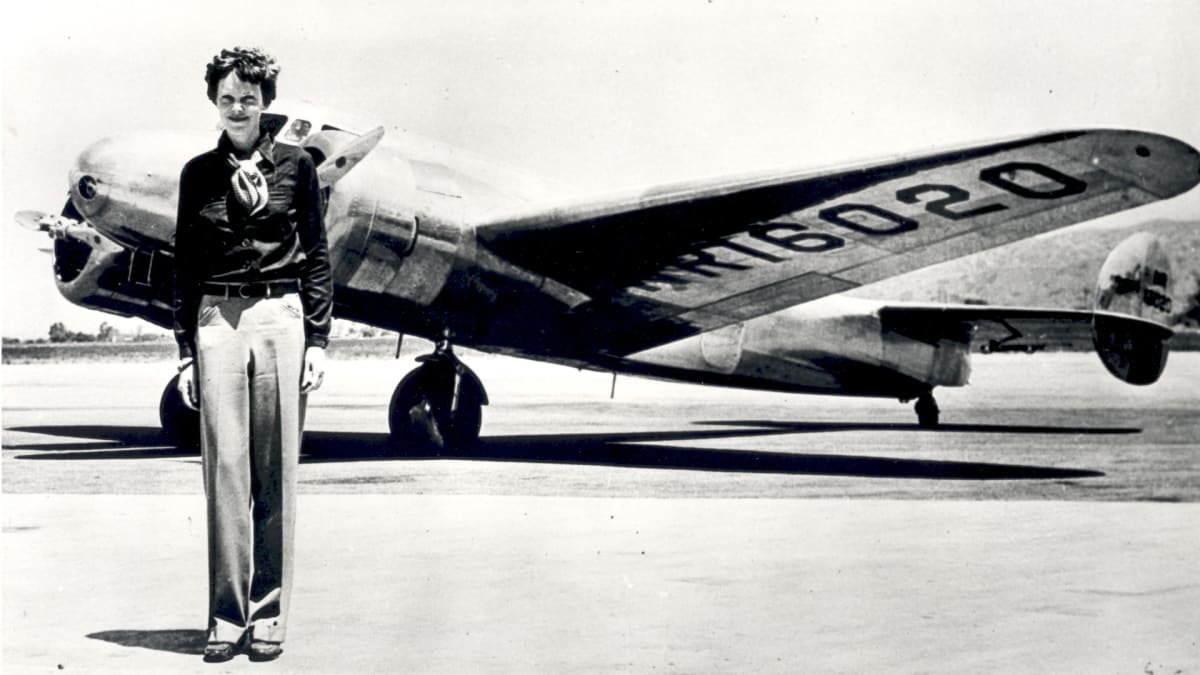
Amelia Mary Earhart took her first airplane ride in December of 1920, an inspiring moment that would eventually lead her to be the first woman to fly solo across the Atlantic Ocean. She set numerous other aviation records during her life, including being the first woman to receive the Distinguished Flying Cross.
Earhart was born in Atchison, Kansas in 1897 and later moved to St. Paul, Minnesota, where she started high school and played on the basketball team—beginning her lifelong dedication to defying traditional gender roles. She later attended college at Ogontz, where she played hockey, exposed secret sororities, and was voted vice president of her class.
Instead of graduating college, Earhart decided to serve as a Red Cross nurse’s aide during World War I in Toronto, where she was exposed to the Royal Flying Corps. After the war, she became a pre-med student at Columbia University in New York. At the age of 24, Earhart began taking flying lessons with Neta Snook, paying for these lessons by working at the Los Angeles Telephone Company as a filing clerk. She later purchased her first airplane, a second-hand Kinner Airster that she called “the Canary.”
That same year, Amelia earned her National Aeronautics Association License and debuted two days later at the Sierra Air Dome in California. Earhart's first aviation record came only one year after earning her license, when she flew 14,000 feet above the ground. Along with her various other records, Amelia became the first woman to fly solo across the Atlantic, and the second person to complete that trip after Charles Lindenberg.
Earhart also put aside time to teach English to foreign students at Harvard and the Denison House, and worked as a companion in a hospital for mental diseases. Her career was ultimately cut short, though, as she disappeared during the 1937 flight that would have made her the first woman to circumnavigate the globe. After a two-week search, she was officially declared lost at sea.
Earhart left behind a legacy as an aviation pioneer who advocated for women and set seven women's distance and speed records. She helped form the Ninety Nines, an international organization promoting the advancement of female pilots and also became president of the organization of licensed pilots that currently represents women flyers from 44 countries. Earhart continues to inspire women around the world to fly high in pursuit of their goals.
